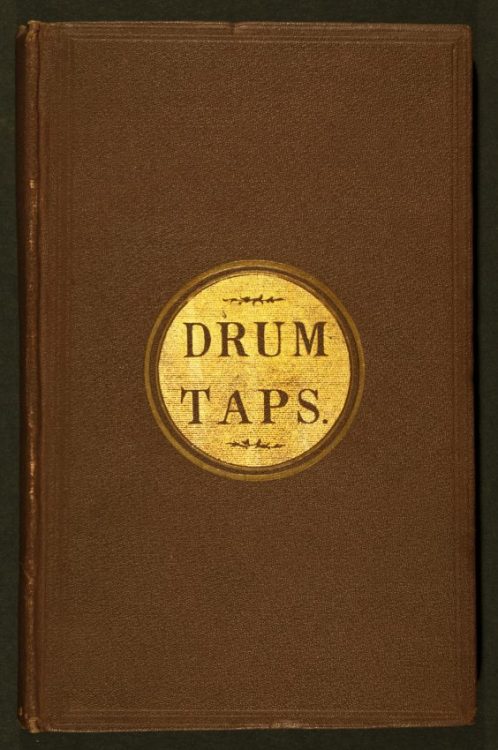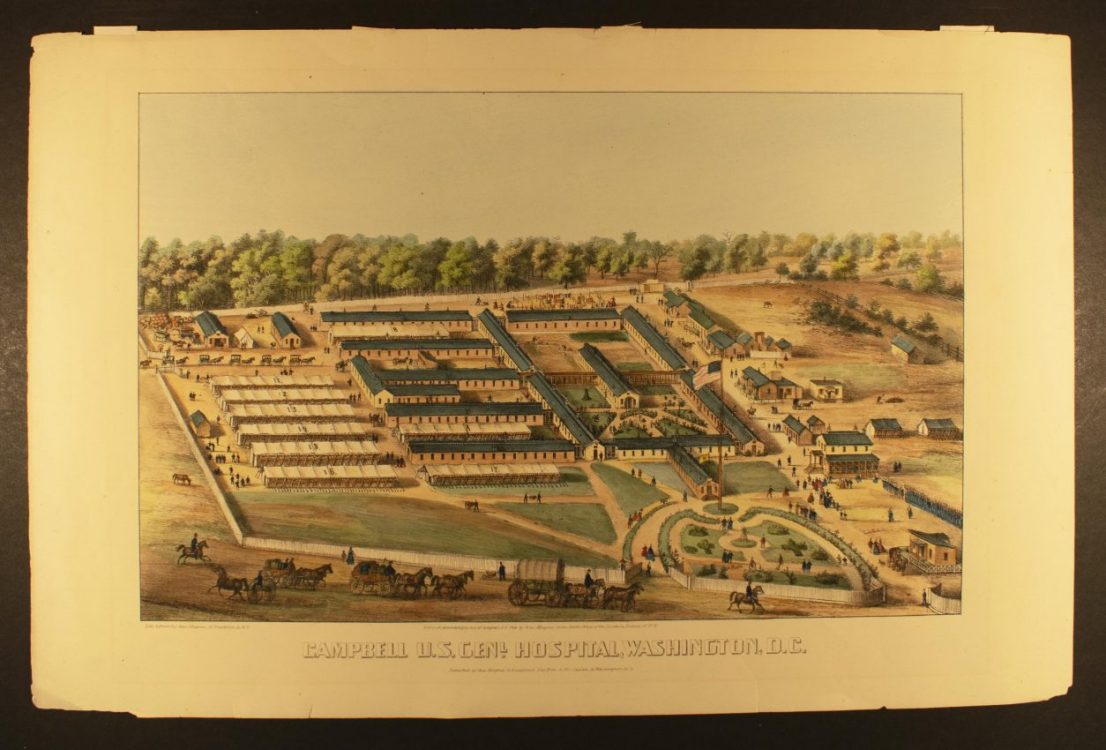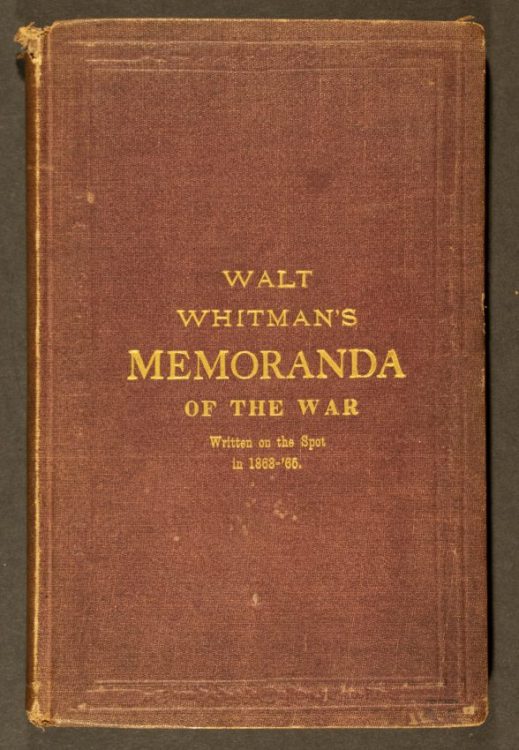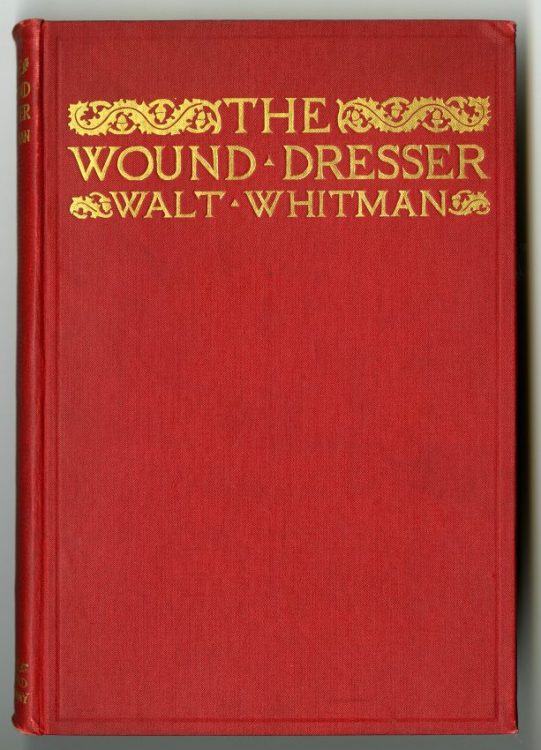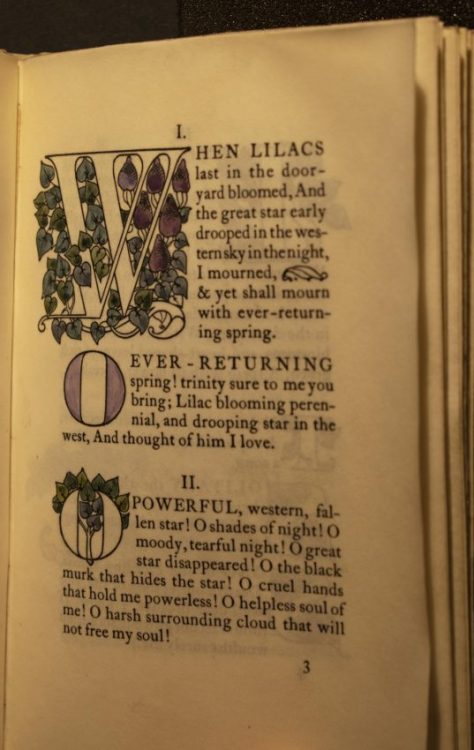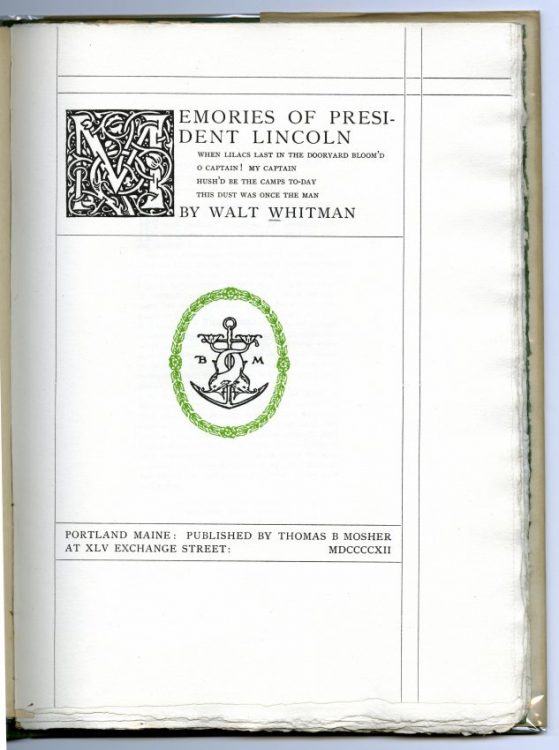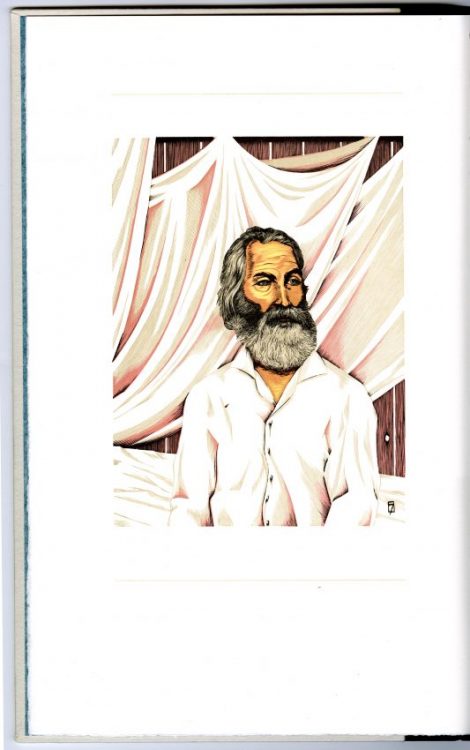Whitman, Walt. Walt Whitman's Drum-Taps. New-York: publisher not identified, 1865.
In Drum-Taps, Whitman collects the poetry he wrote during the Civil War when he was caring for sick and wounded soldiers in Washington hospitals. The collection is the most moving and enduring poetry to emerge from this tragic period in American history. Drum-Taps also inspired a new, modern poetry of war, a poetry not just of patriotic exhortation but of somber witness.
Campbell U.S. Gen'l. Hospital, Washington, D.C. New York: Charles Magnus, 1864.
This hand-colored lithograph depicts Campbell Hospital, one of the hospitals Whitman visited to attend to the sick and wounded. The conditions in hospitals like Campbell were horrendous and historians have speculated that the hospitals killed as many patients as they saved. Whitman writes in one of his notebooks of two such needless deaths in Campbell Hospital: "Frederick Huse . . . died 5th Jan.'63, overdosed by opium pills & laudanum, from an ignorant ward master . . . Joshua Ford, ward master gave him inwardly lead muriate of ammonia, intended for a wash for his feet."
Whitman, Walt. Memoranda During the War. Camden: Author's publication, 1875.
In Memoranda During the War, Whitman's focus is not on the public events of the war, but upon his personal experiences with the soldiers he had met and tended to in the Union hospitals. Memoranda was privately published in an edition of approximately 1000 copies. Whitman has inscribed this copy "To Mrs. Charles Hine, from the author with his love." Mrs. Hine was the widow of the American artist Charles Hine whose portrait of Whitman was used as the frontispiece for the 1860 edition of Leaves of Grass.
Whitman, Walt. The Wound Dresser; a Series of Letters Written from the Hospitals in Washington during the War of the Rebellion. Boston: Small, Maynard, 1898.
This selection prints letters Whitman wrote to friends and family during the period he worked in Washington, visiting and caring for wounded soldiers. Also included are several of Whitman’s essays on the War and the wounded. The letters offer remarkable insight into Whitman’s Civil War experiences.
Whitman, Walt. President Lincoln's Funeral Hymn. London: Edward Arnold, 1900.
This scarce edition of “When Lilacs Last in the Dooryard Bloomed,” Whitman’s poetic tribute to Abraham Lincoln, was printed on vellum at the Essex House Press. The elaborate frontispiece and illuminated initials are the work of the English architect and designer Charles Robert Ashbee.
Memories of President Lincoln, and Other Lyrics of the War. Portland, Me: T.B. Mosher, 1906.
Whitman, Walt. Memories of President Lincoln, and Other Lyrics of the War. Portland, Me: T.B. Mosher, 1906.
This volume collects Whitman’s poetry written during the Civil War. This is one of seven copies printed on pure vellum and signed by Thomas B. Mosher.
Whitman, Walt. Memories of President Lincoln. Portland, Me: Thomas B. Mosher, 1912.
This selection prints several of Whitman's poetic tributes to Abraham Lincoln, including "When Lilacs Last in the Dooryard Bloom'd" and "O Captain! My Captain!" The book was printed on handmade paper in an edition of 300 copies.
From the Lincoln Collection, Lincoln Club of Delaware.
Whitman, Walt. Wrenching Times: Poems from Drum-Taps. Newton, Powys, Wales: Gwasg Gregynog, 1991.
Wrenching Times prints a selection of Whitman's Civil War poems originally published in the collection Drum-Taps (1865). The book was designed and printed by David Esslemont at the Gwasg Gregynog press with seven wood engravings by Gaylord Schanilec.
Schanilec, Gaylord. [Two wood engravings from Wrenching Times]. Newtown, Powys, Wales: Gregynog Press, 1991.Schanilec, Gaylord, [Portrait of a Young Soldier].

